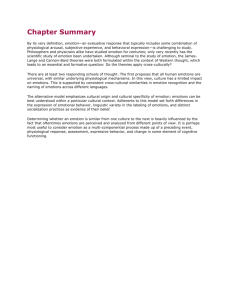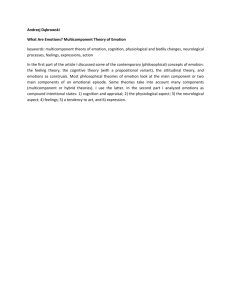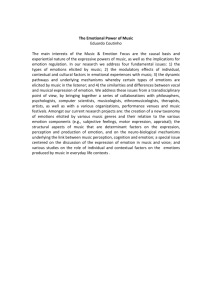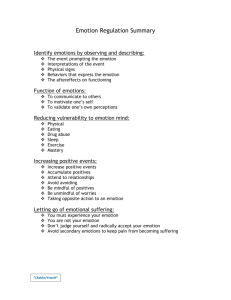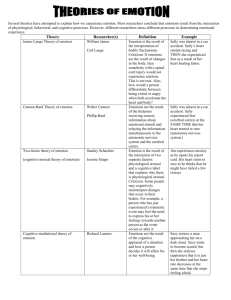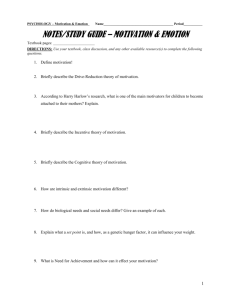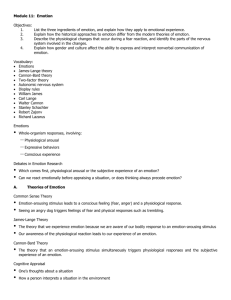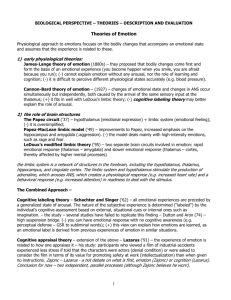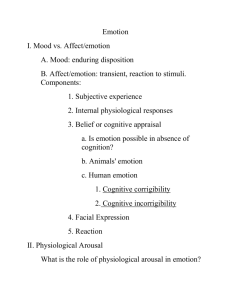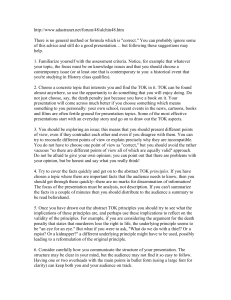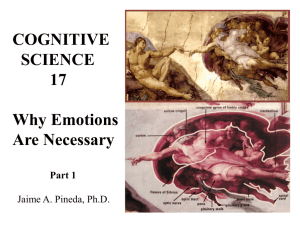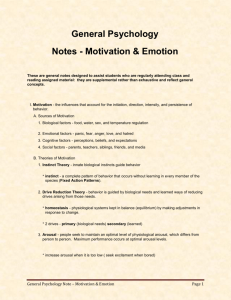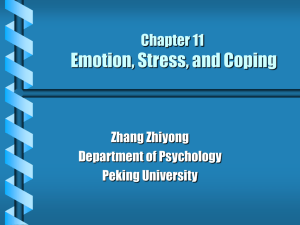Emotion, Experience and Culture - TOK-eisj
advertisement
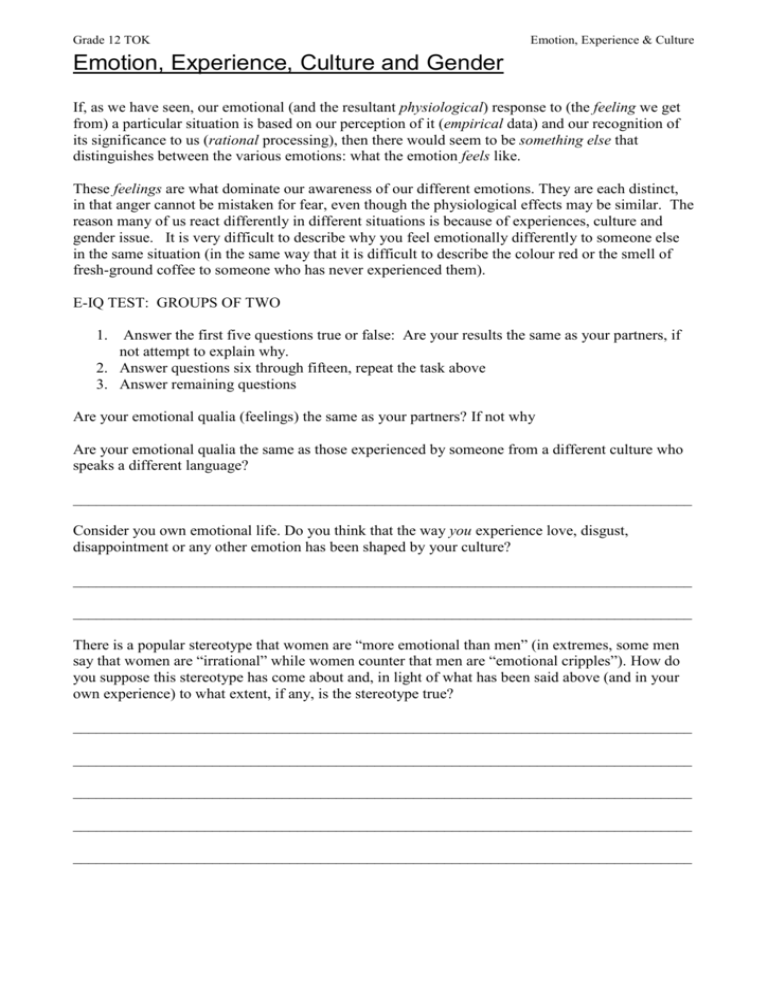
Grade 12 TOK Emotion, Experience & Culture Emotion, Experience, Culture and Gender If, as we have seen, our emotional (and the resultant physiological) response to (the feeling we get from) a particular situation is based on our perception of it (empirical data) and our recognition of its significance to us (rational processing), then there would seem to be something else that distinguishes between the various emotions: what the emotion feels like. These feelings are what dominate our awareness of our different emotions. They are each distinct, in that anger cannot be mistaken for fear, even though the physiological effects may be similar. The reason many of us react differently in different situations is because of experiences, culture and gender issue. It is very difficult to describe why you feel emotionally differently to someone else in the same situation (in the same way that it is difficult to describe the colour red or the smell of fresh-ground coffee to someone who has never experienced them). E-IQ TEST: GROUPS OF TWO 1. Answer the first five questions true or false: Are your results the same as your partners, if not attempt to explain why. 2. Answer questions six through fifteen, repeat the task above 3. Answer remaining questions Are your emotional qualia (feelings) the same as your partners? If not why Are your emotional qualia the same as those experienced by someone from a different culture who speaks a different language? ________________________________________________________________________________ Consider you own emotional life. Do you think that the way you experience love, disgust, disappointment or any other emotion has been shaped by your culture? ________________________________________________________________________________ ________________________________________________________________________________ There is a popular stereotype that women are “more emotional than men” (in extremes, some men say that women are “irrational” while women counter that men are “emotional cripples”). How do you suppose this stereotype has come about and, in light of what has been said above (and in your own experience) to what extent, if any, is the stereotype true? ________________________________________________________________________________ ________________________________________________________________________________ ________________________________________________________________________________ ________________________________________________________________________________ ________________________________________________________________________________ Grade 12 TOK Alchin on Cultural differences: Emotion, Experience & Culture Grade 12 TOK And in Conclusion: Emotion, Experience & Culture



